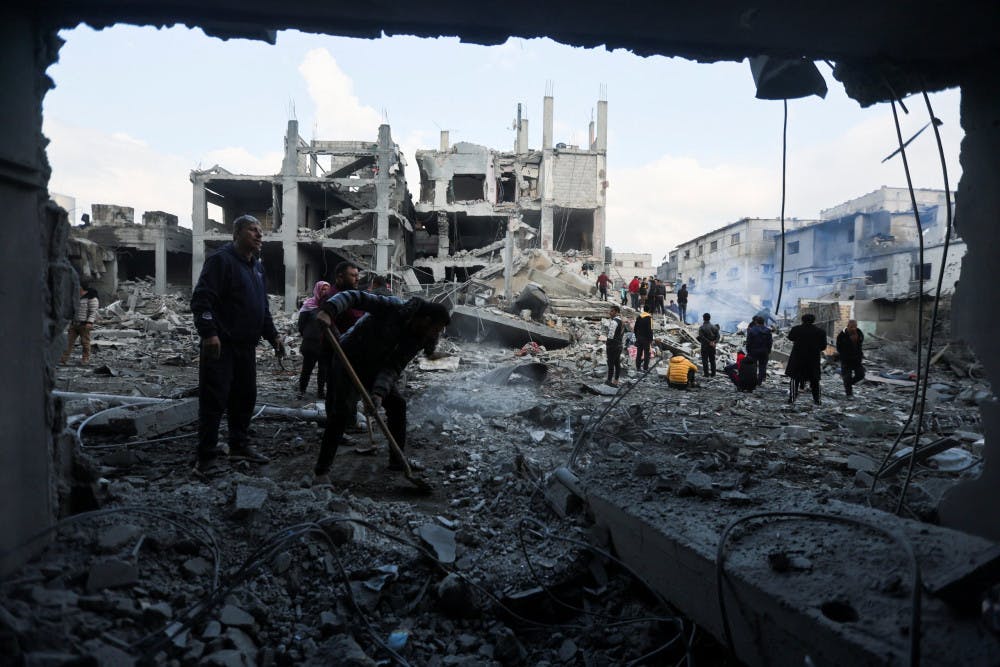Muslim and Jewish students from the University of Northern Colorado are currently under pressure due to the Palestine-Israel war that is happening in Gaza.
According to news reports and major Jewish advocacy groups, Israel's military reaction has sparked a tremendous increase in antisemitism both domestically and internationally, greatly frightening Jewish students and their communities.

Islamophobia and antisemitism is growing exponentially fast in the states. Students on both sides are witnessing acts of hate, leaving many fearing for their safety even as they walk to classrooms.
Attacks and accusations have also come from one Ivy League college. At Columbia University, Muslim students are getting harassed and spit on because they are joining the ceasefire protest in the middle of New York City. Another protest at the University of Massachusetts Amherst, a student was detained after reportedly showing hate towards the Jewish community by hitting a Jewish student and spitting on an Israeli flag during a protest.
Students from UNC shared their concerns regarding the issue. Salma Hamdy from Dubai talks about her experience facing Islamophobia.
“I am a Muslim and of course, I feel so sad and directly affected by the on-going war," Hamdy said. "Genocide is happening and no one seems to care about it. When I try to talk to some people about that, they gave me weird stares. I think they are Islamophobic."
One of the Jewish students at UNC shared her view towards these global tensions.
“I grew up Jewish. My father is a rabbi and I have a strong connection with Israel," said Ilana Sherwood, a first year musical theatre student at UNC. "The current conflict has had a big affect on me mentally because I have friends and family who are being directly affected."

Mourning thousands of lives while having to answer for Hamas is part of the frustration for Arab, Muslim and pro-Palestinian students, including Pro-Palestinian Jews, as the Israeli military continues to bombard Gaza in an attempt to destabilize Hamas' control.
On the Oct. 7, attacks made by Hamas killed 1,300 Israelis. Since then, almost 1.9 million people, more than 85% of Gaza's total population, have now been displaced, a UN agency said.
In addition, more than 18,700 Palestinians have been killed by Israeli attacks since Oct. 7, according to the according to Gaza health officials.
“The conflict's echoes are felt in classrooms, dormitories and coffee shops. Not because people are talking about it, but because the silence is too loud”, said Maira Tariq, a UNC student majoring in economics. Tariq is from Pakistan and has been living in Colorado since she is 9 years old.
“How am I supposed to go to class without crying?” Tariq asked.
In the middle of this conflict, UNC's Division of Diversity, Equity and Inclusion (DEI) office has responded with proactive measures, establishing counseling services and safe spaces for open dialogues.
The DEI office sent an email to all students to acknowledge the impact of the war for UNC students and also provide students with resources to let them know that they are not alone in this situation.
Tobias Guzmán, vice president of the DEI, stands as a beacon of support for both Muslim and Jewish students.
"The conflict has generated significant stress and anxiety among our students, affecting their academic performance and overall well-being," Guzmán affirms. “UNC takes a serious measure to ensure the safety and a sense of security among its students by promoting a healthy discussion for students. Our division has organized workshops and educational programs to encourage cross-cultural dialogue and enhance empathy among students."
Gillian McNally, a Jewish professor who is teaches theatre, shares in her class about how devastating this conflict is.
Some Jews are concerned about being punished for Israel's conduct: a case of confusing people and a government that does not represent them, according to McNally. She shared the Jewish perspective and asked a Muslim student to share her perspective too.
UNC recognizing the need for unity, has shared its initiated dialogue-promoting events and collaborations.
“It is important to create awareness," said Guzmán. "To mitigate bias, extreme exposure is the answer.”
Despite the ongoing rage all over the world with thousands of protests happening across the world, the situation on campus seems peaceful and safe.






